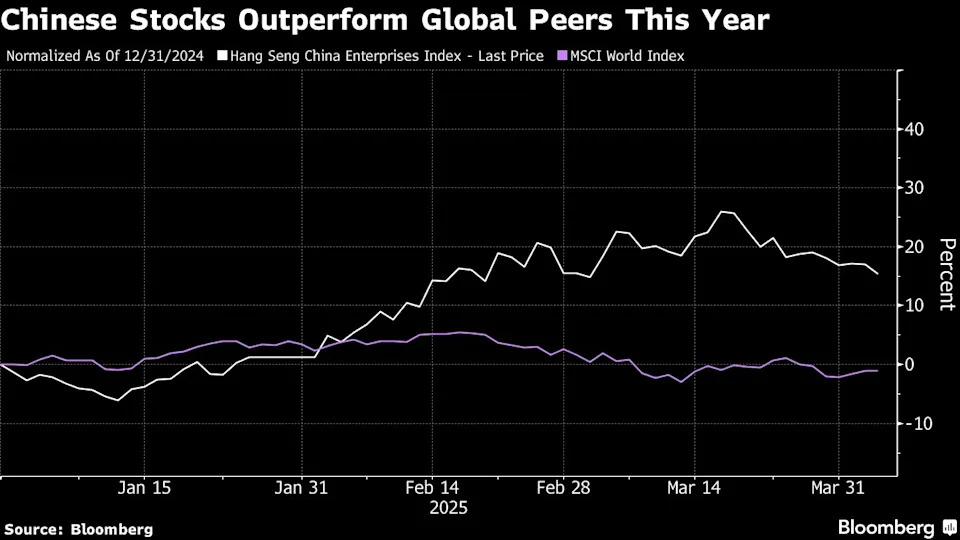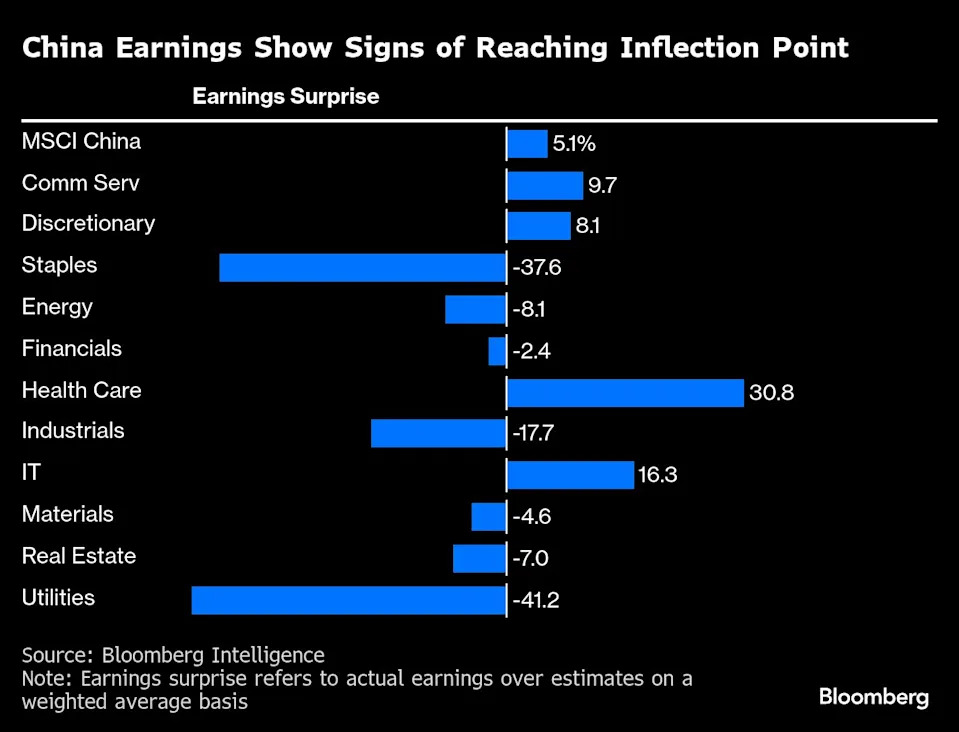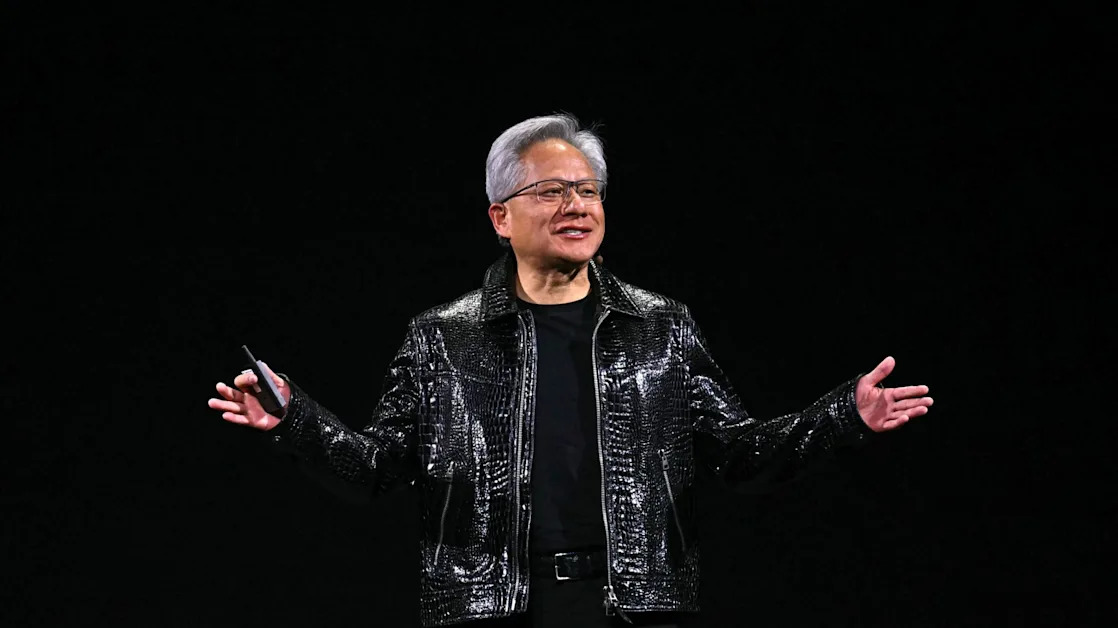(Bloomberg) — Some of the world’s biggest money managers say Chinese stocks have the means to weather the tariff blitz unleashed by US President Donald Trump on the economy.
Fund managers at Franklin Templeton, UBS Global Wealth Management, Aberdeen Investments and JPMorgan Asset Management argue that a possible increase in Chinese authorities’ fiscal support and pro-business shift, advancements in artificial intelligence, and an ongoing earnings recovery can counterbalance the negative effects of the US reciprocal tariffs.
China is the “largest opportunity set for investors” underpinned by years of innovation, continued policy support and its redirection of exports to other countries, said Nicholas Chui, a fund manager at Franklin Templeton. “Earnings recovery in several sectors has already started and should continue to play out across the rest of 2025.”
Such bullishness portends the durability of China’s world-beating rally, even as tariffs escalate the trade war and potentially undermine growth prospects. It also suggests any selloff may be considered a dip-buying opportunity by investors, who believe that Beijing has the will to address long-term issues.

UBS Global Wealth Management plans to monitor markets for opportunities to build up their exposure due to Beijing’s pro-business tilt, the firm’s Chief Investment Officer Mark Haefele said in a note.
Such confidence from global investors echoes the views of local money managers, who have been more optimistic about Chinese stocks for some time.
An index for Chinese shares in Hong Kong halved its early losses and was down 1.3% in late trading Thursday. The onshore benchmark CSI 300 ( 000300.SS ) Index finished the day down just 0.6%.
Despite US tariffs, “Hong Kong and Chinese markets have shown resilience, partly due to potential stimulus,” Tai Hui, JPMorgan Asset’s chief market strategist for Asia Pacific, wrote in a note Thursday. “Onshore AI development could also continue to drive corporate earnings.”

Corporate earnings in the fourth quarter beat estimates by a larger margin than than they did in previous quarter, indicating Beijing’s campaign to revive consumption is starting to pay off.
To be sure, some are skeptical about China’s outlook.
The tariffs stand to crush exports and dent growth at a time when the recovery is looking fragile, Bloomberg Economics Chief Asia economist Chang Shu wrote in a note.
“Trump’s ‘Liberation Day’ tariff on China looks close to — or worse — than our worst-case scenario,” she said.
China vowed to retaliate, calling for an immediate cancellation of the tariffs.
Still, Trump’s move may lead to other geopolitical advantages for China. It could set up the global stage for its leadership in trade, said Xin-Yao Ng, a fund manager at Aberdeen Investments in Singapore.
“I am not too pessimistic about China in medium term,” he said.
—With assistance from Jing Jin and April Ma.





